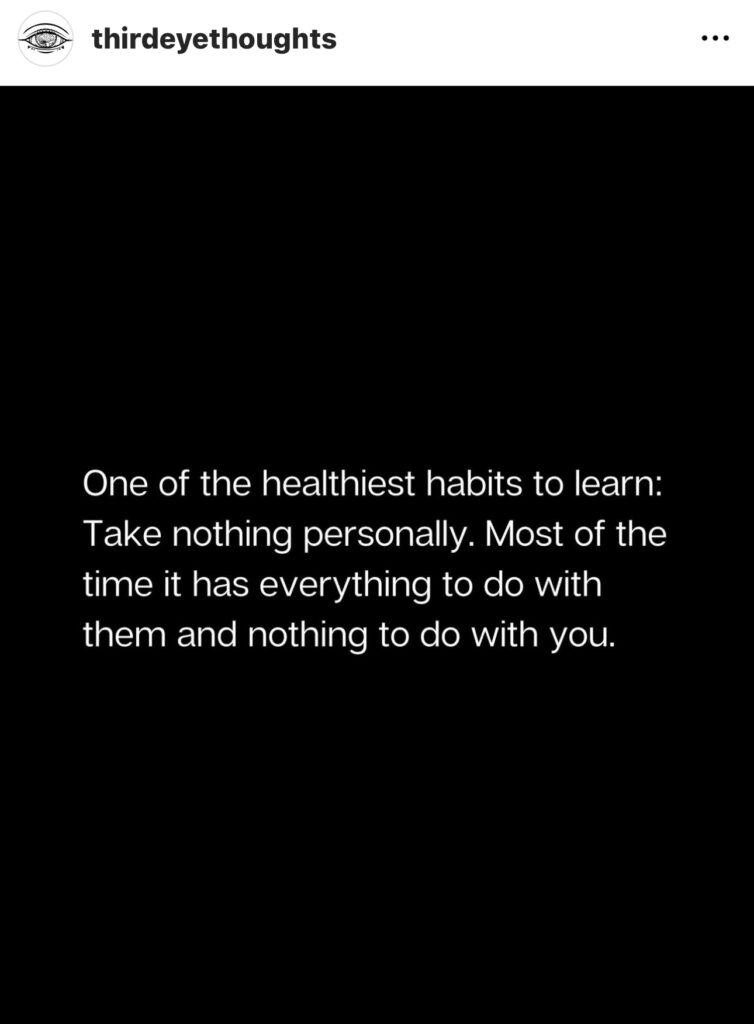I saw the image below from the Instagram account @ThirdEyeThoughts:

I am getting better at this as an adult, and although it is often true, it is also essential to consider that the quote above is not always valid.
For example, if you do something wrong to someone else, and your apology is to the effect, “I am sorry that I made you feel that way,” that is more about shifting the problem onto someone else than taking accountability. I appreciate the “most of the time” in the above phrase.
When I first saw the image, I thought about a speaker who had come to my school district in maybe my third or fourth year of teaching. I remember I was enjoying teaching at the time, but there were many days when I was genuinely struggling.
Then, in a moment of clarity, the speaker said the following; “Never let an 8-year-old ruin your day.”

That statement hit me hard.
I was often going home upset about a student calling me “poo poo head,” and then I realized, often, the student wasn’t upset with me but something that was going on elsewhere in their lives. Yet, I was the closest person in the way. It wasn’t about me but about what was going on in their lives.
Immediately, I started to let some of the upset feelings I had dissipate.
Think about it this way: sometimes, the people we are hardest on are not strangers but those closest to us. Why? Because we feel safe enough to be that way around them, whether it is right or wrong.
It is important to mention that this doesn’t excuse bad behavior.
If someone is disrespecting you, whether a student or an adult, it is not okay. I just learned not to take it personally, which didn’t take accountability away from them but let me move on quickly or immediately.
If you think this only applies to students, I ask you, have you seen the adults?
I do this. You do this.

When I do it, I am getting better at taking a step back or even removing myself from a situation to not get worse to others.
When others do it, I also either a) say something or b) say nothing. It depends on how close of a relationship I have with the person.
And how do I determine that? Tom Holland explains it well:
Learning to let things go and realizing that many times they are not about you are skills I am still working on, but I am getting better.

When I shared the idea of “never let an 8-year-old ruin your day,” some said that it is a statement that lacks empathy, whereas I might argue the opposite.
It is understanding that often, it is not about you as much as it is about them.